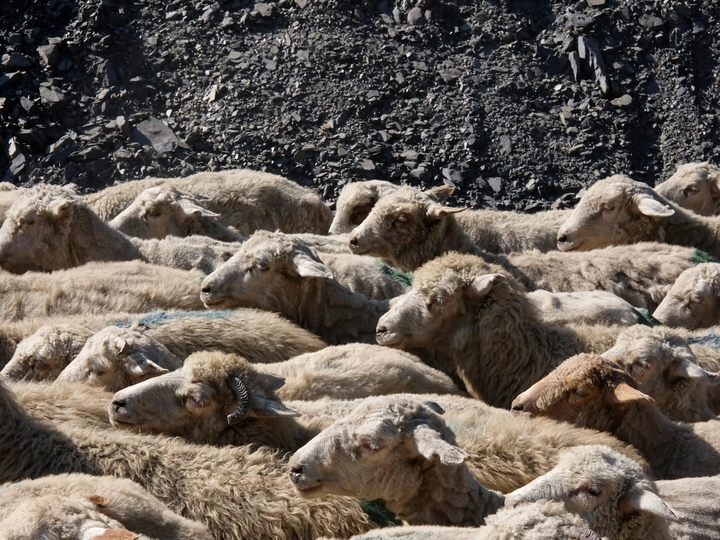Transhumance Landscapes Across the Caucasus

Salome Katamadze
Elene Machaidze
Salome Katamadze is a Georgian-born Architect based in Milan (IT); her research interests focus on the physical and cultural transformation of the landscape in the contested border territories and the interaction of political power domination on the unbuilt environment. Since 2022, she has been a PhD candidate in Urban Planning and Design Policy at Politecnico di Milano, and a visiting PhD candidate at Border&Territories at TU Delft. In parallel with the research, she is a co-founder of an Italian-Georgian Architecture and Landscape office, NOIA practice.
Duccio Fantoni is an Architect, co-founder of NOIA practice, an Architecture and Landscape office active in Italy and Georgia. Currently a PhD candidate in Politecnico di Milano at the Department of Architecture and Urban Studies, where he explores transient spatial phenomena as transcultural agents, from the scale of buildings to the territory.
Elene Machaidze is an Urban Planner, currently operating as an Urban Planning Consultant at the Spatial and Urban Development Agency. She holds a Master’s Degree in Urban Planning and Policy Design from Politecnico di Milano. Her private sector professional experience covers architecture and urban planning projects.
LANDS ON THE MOVE is a Tbilisi-based research platform established in 2024 by Duccio Fantoni, Salome Katamadze, and Elene Machaidze. Rooted in spatial research, the platform also foregrounds educational engagement through workshops, seminars, and public lectures. Its central mission is to cultivate collective knowledge production and experimental methodologies attuned to marginalised territories with cultural tensions. Our research interests are grounded in the territory as a living palimpsest of temporal, cultural, and political layers, perpetually “on the move.” We examine how fleeting phenomena—secular nomadic practices, seasonal animal migrations, impermanent architectures, and mobile ecosystems (insects, seeds, dust)—inscribe mnemonic traces that both reveal and produce spatial conflicts. Through direct observation, documentation, representation, and critical reflection, we explore the social, ecological, and ethical dimensions of these frictional landscapes. Our ongoing research project delves into the layered ecology of transhumance in the Caucasus, tracing sheep migration routes from lowland pastures to alpine meadows. Employing shepherd interviews, multilayered mapping, audiovisual recordings, and archival research, we construct an evolving spatial archive of fluid narratives. This work illuminates how natural forces, land privatisation, territorial (de)regulation, and infrastructural imposition transform both landscapes and livelihoods—inviting speculative and operational responses to the environmental crisis and its sociopolitical ramifications. Embracing a multidisciplinary ethos, LANDS ON THE MOVE operates at the intersection of research and practice. Looking ahead, we are expanding our register of inquiries by combining collective cartography, immersive educational workshops, and publications to advocate for a polyphonic, transmedial approach to frictions, marginal territories, and multi-scalar landscapes.